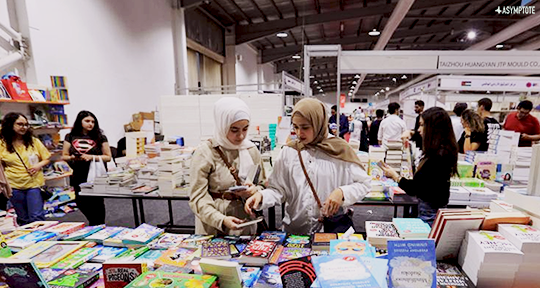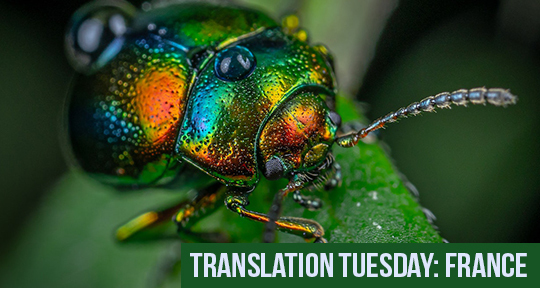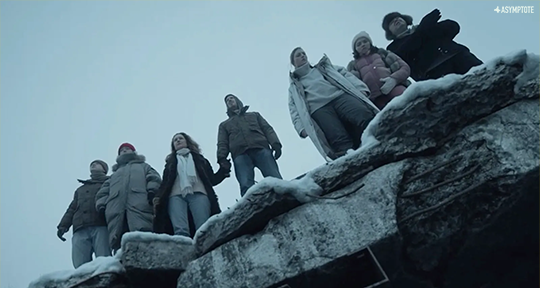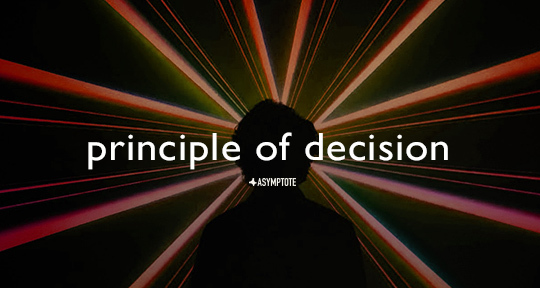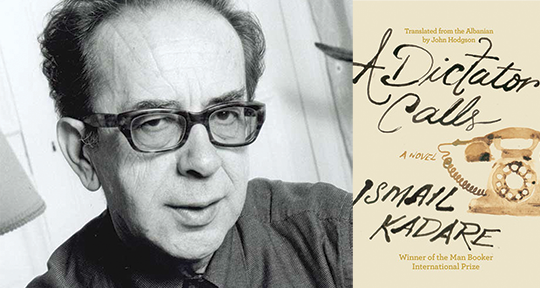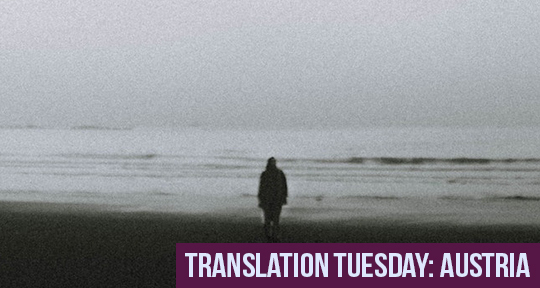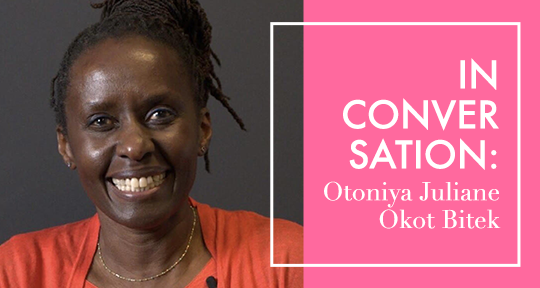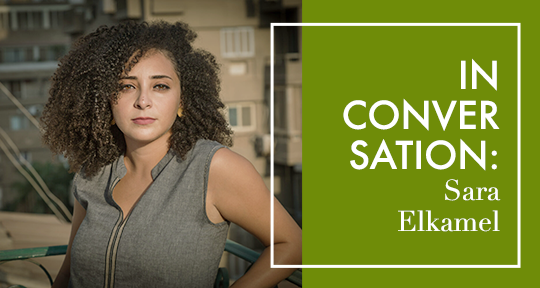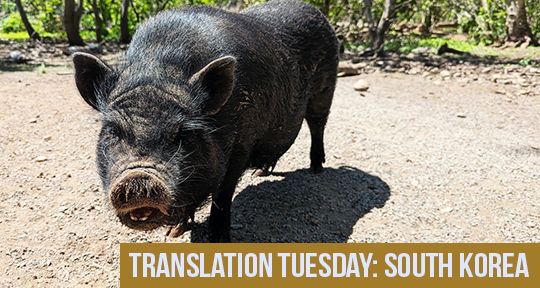This Translation Tuesday, we present a fairy tale encounter amid dark signs of a war’s beginning, elegantly entwined and counterposed by Jadd Hilal. The lonely Adel discovers two improbable creatures in his wardrobe, and they become his first real friends. In the outside world, meanwhile, something horrible is unfolding: school is cancelled, the local protests are turning ugly, shots ring out at night, and militias have begun to roam the streets.
We reproduce here a note from Hilal’s translator, Bryan Flavin, who tells us more about the author and his work.
A note from the translator:
L’Orient du Jour described A Bathtub in the Desert, Jadd Hilal’s acclaimed second novel, as “The Other Little Prince…[its] endearing narrator reminiscent of Saint-Exupéry.” Yet while Saint-Exupéry and Hilal both confront the expectations assigned to childhood and adulthood, Hilal does so within a different context, one of war and exile:
When war breaks out, Adel’s life changes forever. Fortunately he still has his two giant imaginary insect friends, Darwin and Tardigrade, to help him escape. Strained to make decisions beyond his maturity, Adel finds himself at a desert outpost where the combatants act like children, and the sheikh, leader of the outpost, forces him to grow up. Throughout, Adel must learn what it means to be an adult, traversing war and exile, friendship and isolation, innocence and identity.
With emotion and stylistic minimalism, the novel challenges the typical Bildungsroman in two ways: 1) it asks readers to re-examine and contextualize the biases surrounding childhood and adulthood; and 2) it subverts the Bildungsroman’s gradual trajectory, instead marked by Adel’s navigation of traumatic experience. The following translation is an excerpt, starting when Adel first meets Darwin and ending right before the start of the war.
A Bathtub in the Desert
When I say I didn’t have any real friends, that’s not entirely true—I did have one friend: my giant beetle. He appeared the night my parents announced their divorce. I still remember that night—I opened the door to my massive wardrobe and found him there, next to the toy plane my father had given me for my third birthday, the dozens of stones I’d collected on the roads, and the cardboard box decorated with lentils I’d made for my mother at school, along with a number of other memories.
I should say, I only ever used my wardrobe for this—for keeping memories. I had convinced my parents to buy me a dresser for my clothes, but in exchange, I had to give up my large jar filled with the Chiclets I used to collect. Not a bad deal. Besides, I ended up needing the space. Without it, I would’ve missed out on my very first friend.
Even though he was definitely a beetle, the thing that made me slam the wardrobe shut and rush back to my bed—the thing I forgot to mention—he was as big and as tall as a grown-up.
“Who are you?”
I remember fumbling back to the wardrobe door and opening it. He was still there.
“What do you want?”
He didn’t speak, but his eyes told me he was scared. Now that I think of it—he didn’t really look like a beetle at all. Instead of tiny little legs, he had two long ones, like us. He wore midnight blue dress pants with white pinstripes and white polished shoes. Above that: nothing. All black with only a pair of eyes at the very top. Blue eyes with wrinkles around the corners. As if he were smiling.
READ MORE…




